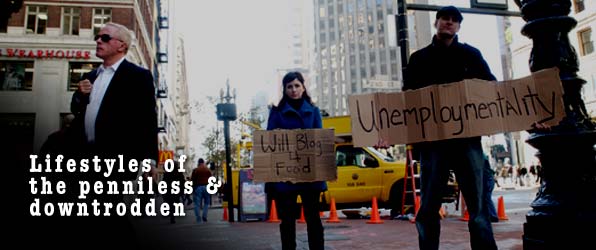My post earlier this week was about Morten Hansen's Collaboration, which I found to be one of the best management books that I had read in a long time. In contrast, I thought I would write about the worst workplace book that I have read in a long time, The Pleasures and Sorrows of Work by Alain de Botton, which I first heard about in The Economist in a pretty positive review that made it sound as if the book celebrated work and workers.
Unfortunately, as I read the book, I found it was really a cheeky assault on the dignity of the people who had invited the author into their lives. Although he described what they did and the complex connections among the world-wide supply chain they were part of quite well, his apporach seemed to be to belittle and trivialize the work, character, and aspirations of the people he wrote about.
I was especially disturbed by how much he seemed to disrespect and the managers and workers who produced a biscuit (or "cookie" in American) called "Moments." He trivialized the skills and enthusiasm of everyone involved in the complex process of developing making these biscuits. The author is a very skilled writer, so his disrespect is woven into his words with remarkable subtlety, such as in these sentences he wrote about his conversation with the "warm-hearted and garrulous" plant manager Michael Pottier:
"Years of working around noisy machinery had left my host mildly deaf in one ear and given him a concomitant habit of leaning in uncomfortably close during discussions. so close that I dreaded his enunciation of a word with a p or a g in it."
Then de Button goes onto convey that, although he was bored with Pottier's detailed explanations, he was struck by a "surprisingly intense pride in the plant and its workers." Why he found such pride surprising is beyond me — these people worked hard and saw them self as producing a good product — sure, biscuit's don't save lives, but neither do most books. This kind "cheeky" humor at the expense of people who had taken the time to talk with the author and provided him with warmth and hospitality pervade the book, and at least for me, completely ruined the experience of reading what is a well-researched manuscript with fascinating information about the connections and complexity of the modern workplace.
All in all, the book reminded me of one of my favorite Kurt Vonnegut's quotes, which I've printed here before:
“If
it weren’t for the people, the god-damn people” said Finnerty, “always getting tangled
up in the machinery. If it weren’t for them, the world would be an engineer’s
paradise.” Kurt
Vonnegut, Player Piano (1952:59)
In similar fashion, Mr. de Button seems fascinated with the machinery of modern supply chains and workplaces, but rather disgusted with the human-beings who invent and run that machinery. In reading the book, I couldn't help but think of the wonderful books I've read over the years that — although presenting warts and all views of work — still conveyed so much respect and dignity for the people doing the work, including Ben Hamper's amazing Rivethead about his life on the assembly line, Tracy Kidder's astounding Soul of a New Machine, and my favorite creativity book Orbiting the Giant Hairball.
Perhaps I am being unfair to Mr. de Button because I don't quite get that English "cheeky" wit that runs throughout the book as I am an unsubtle American. But I have always admired the work and desire for dignity in all the workers I've studied, whether they be bill collectors, 7/Eleven clerks, nurses, teachers, hospital workers, product designers, or CEOs. I like enthusiasm, skill, and pride in whatever human forms it takes. And I dislike pomposity and lack of empathy in whatever forms it takes as well, and Mr. de Button chronic self-importance and clever disdain for workers of all kinds made my stomach turn as I read the often mean-spirited Pleasures and Sorrows of Work.
P.S. To my amazement, I learned from CV Harquail's comment below that The New York Times reviewed this book in June and reached a similar conclusion. In fact, they used the exact same quote as I did above, and called it mean-spirited. Please forgive my lack of originality and I guess this is certainly is not a scoop. Also, see CV's comment for a bit of dirt below — apparently Mr. de Button reacted with some public hostility to the review, but later apologized. As an author myself, I understand the feeling and have been tempted to do the same when I have received less than flattering reviews. CV thanks so much.


